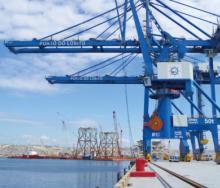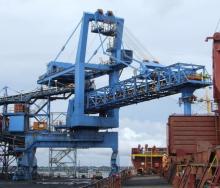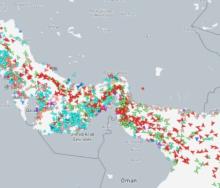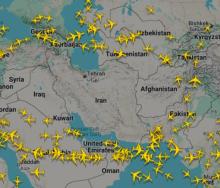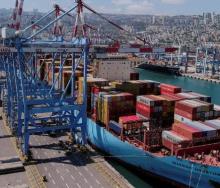Conflict insurance premiums for vessels transiting the Strait of Hormuz have risen sharply in recent weeks, despite a ceasefire currently in place between Israel and Iran.
The increase reflects mounting concerns among insurers and shipping companies over the potential for renewed conflict in the strategically vital waterway.
According to a recent industry update issued by logistics multinational Bertling, carriers have begun imposing substantial war-risk surcharges on cargo transiting the strait, which links the Persian Gulf to the Gulf of Oman and accounts for roughly one-fifth of global oil shipments.
Insurance costs for ships in the region have reportedly surged from approximately 0.125% of a vessel’s value to between 0.2% and 0.4%.
Vessels linked to the United States and its allies are facing even steeper charges, with premiums rising to as much as 0.7%.
The escalation in premiums follows recent US airstrikes on Iranian military facilities in late June, which prompted warnings from Iran’s parliament, including threats to disrupt commercial shipping through the Strait of Hormuz. Although a ceasefire is technically in effect, the security situation remains volatile, with insurers citing elevated geopolitical risk.
Analysts note that while the ceasefire between Israel and Iran has provided temporary relief, the insurance market continues to price in the likelihood of further instability. Several shipping lines have already adjusted their routes or passed on increased costs to customers through surcharges.
Industry experts warn that any disruption in the Strait of Hormuz could have wide-reaching implications for global trade and energy markets, particularly as tensions between Iran and Western powers remain unresolved.
The spike in war-risk premiums has added to the financial burden facing maritime operators and could result in higher freight costs globally, especially for oil and gas shipments originating in the Gulf region.

